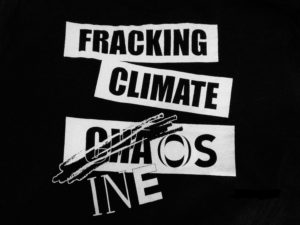Broad Coalition Backs National Trust in Fracking Fight With Ineos
A diverse coalition of groups and academics from the UK and the US released a letter to Prime Minister Theresa May supporting the National Trust's efforts to prevent the petrochemical company Ineos from making the first steps towards fracking in one of England's most treasured environmental areas
 Brussels and Washington, D.C. — Citing concerns over climate change, protecting sensitive ecological sites, and preserving local control of lands, a diverse coalition of groups and academics from the United Kingdom and the United States released a letter to Prime Minister Theresa May supporting the National Trust’s efforts to prevent the petrochemical company Ineos from making the first steps towards fracking in one of England’s most treasured environmental areas.
Brussels and Washington, D.C. — Citing concerns over climate change, protecting sensitive ecological sites, and preserving local control of lands, a diverse coalition of groups and academics from the United Kingdom and the United States released a letter to Prime Minister Theresa May supporting the National Trust’s efforts to prevent the petrochemical company Ineos from making the first steps towards fracking in one of England’s most treasured environmental areas.
The letter is supported by Food & Water Watch, Food & Water Europe, Oil Change International and academics from both countries, including the Marine Conservation Society, Scientists for Global Responsibility, Campaign to Protect Rural England, World Wildlife Foundation, Greenpeace, Frack Free United, Friends of the Earth and UK Youth Climate Coalition. The letter was also signed by individuals and academics including fashion icon Vivienne Westwood and her son Joe Corré, Cornell Professor Robert Howarth, Dr. Sandra Steingraber, Prof. Nick Cowern and Prof. Peter Strachan.
“Ineos’s fracking dreams are a nightmare for communities on both sides of the Atlantic, and that’s why so many anti-fracking campaigners are speaking up to stop them,” said Wenonah Hauter, executive director of Food & Water Watch and Food & Water Watch Europe. “Anyone who cares about the climate crisis, the increasing burden of global plastics pollution, and the air and water pollution associated with petrochemical manufacturing should get active in the fight to stop Ineos from fracking the UK–and anywhere else for that matter.”
Ineos currently is the major shale license holder in the UK, and is attempting to force its way into the National Trust’s Clumber Park, a sensitive and historically significant site that attracts hundreds of thousands of visitors every year. After blocking access to land surveyors, Ineos has responded by taking legal action against the National Trust.
With facilities around the globe, Ineos’s environmental violations and history of air pollution have come under increased scrutiny. The petrochemical giant is pursuing drilling in the United Kingdom in order to supply its facilities with fracked hydrocarbons that can be used to produce plastics. Their corporate vision comes at a time in history when global warming and the plastic pollution of our oceans and shorelines are the most critical issues of our generation, and the ones to come.
The company’s ambitions are relevant to battles over fracking in the United States. Ineos developed a fleet of “dragon ships” to carry gas liquids from Pennsylvania to its facilities in Scotland and Norway. Those shipments are likely to increase if the massive Mariner East 2 pipeline is completed. But that pipeline — a project of Sunoco/Energy Transfer Partners — has been a source of intense controversy, with construction causing drilling spills and water contamination. Most recently, a series of sinkholes caused state regulators to halt operations on the existing Mariner East 1 pipeline.
Ineos’s fracking plans across the United Kingdom have been running into determined local opposition. As the letter to Prime Minister May notes, opinion polls show strong public opposition to fracking, which suggest that the public understands the array of risks associated with the practice. And the Scottish government, in response to overwhelming public opposition, announced its decision to ban fracking last year.
As the letter to Prime Minister May puts it, “Climate change is one of the most urgent and complex threats to the British countryside today. Fracking poses significant risks to the natural environment through loss or fragmentation of habitat, disturbance of wildlife and potential pollution of watercourses that support sensitive ecosystems and biodiversity and as driver of climate change.”


